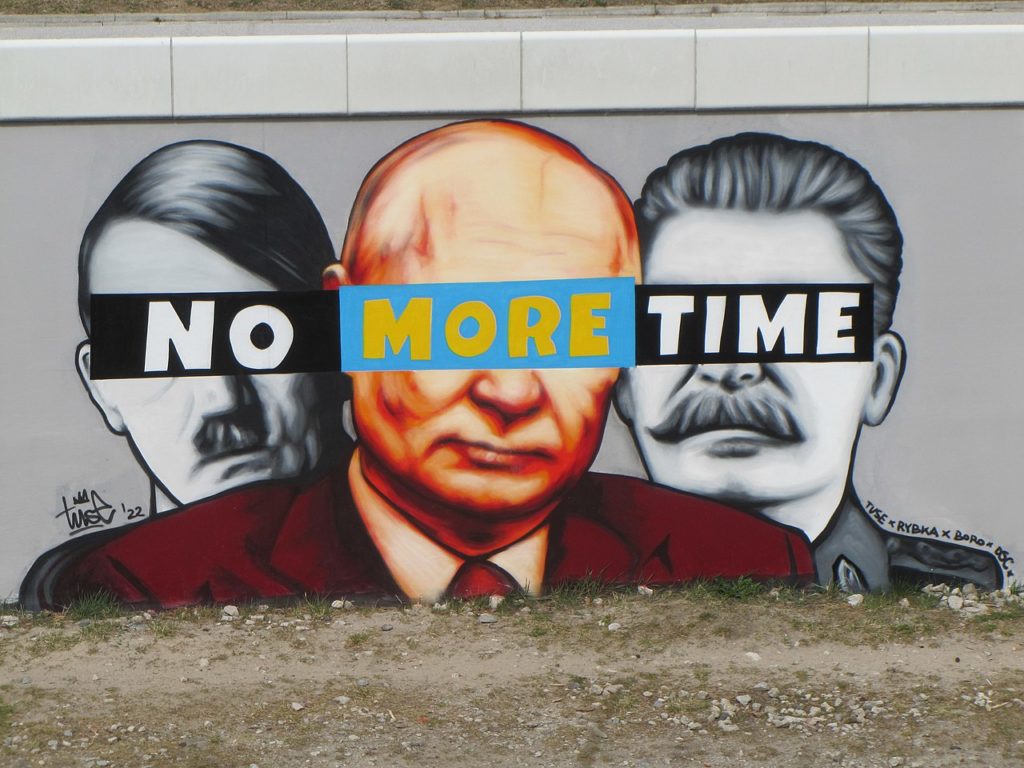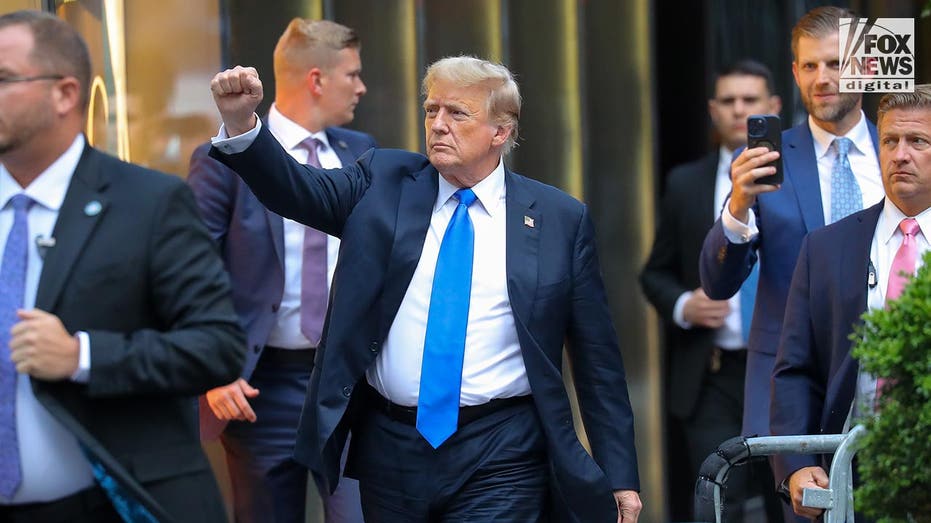NATO must abandon “Russia-Ukraine War” delusion
Denial is not a sustainable strategy. The West must aknowledge Russia's global war for what it is -- and start fighting back


We have all seen, read and heard the term “Russia-Ukraine war.” It is widely used by diplomats, politicians, experts, analysts, academia and journalists.
While challenging the phrase might be seen as provocative by some and trivial by others, the term “Russia-Ukraine war” is nevertheless an inaccurate and misleading description of a war far broader in scale and scope and, therefore, more sinister. The term “belittles” a war that has global repercussions and allows NATO and its member states to continue “business as normal.”
It defines public discord, level of support (for Ukraine and Europe), Western situational awareness, the sense of (or the lack of) urgency, the will to invest in security and defense as well as mobilize the defense industrial base, diplomatic initiatives, military posture and not least, the strategic engagement of NATO.
Why misleading?
Have you, however, stopped and asked yourself if the term is accurate for a war that is being fought with both military and non-military means; a war that is being fought on land, in the air, at sea, in space, in cyberspace and not least, in the cognitive space; a war that unites autocracies and democracies across the globe in two distinct, opposing coalitions.
Can a war that knows no borders and has far-reaching global repercussions be labelled as simply a “Russia-Ukraine war”?
Is the term relevant, knowing that Russia does not see Ukraine as its foe? It has defined the West as its enemy.
Can it be called a “Russia-Ukraine war” if the US and Europe – not Ukraine – are Russia’s antagonists?
Russia has strenuously argued that it is at war with the West. Mirroring its own actions against us, it accuses the US, NATO and the EU are waging an information war, economic war, war of proxy and total war against Russia. The sanctions are portrayed as an act of aggression.
Does this substantiate the claim that we are witnessing a “Russia-Ukraine war”?
The Kremlin is arguing that its unprovoked invasion of Ukraine is a part of its total war for national survival. President Putin has stressed that “it is a fight for the survival of Russian statehood, because our adversary [the West] […], have one goal […] which is to destabilise us and pull our country apart.” He basically said that the war is far bigger than Ukraine. It is about Russia and the West.
The view was recently reaffirmed by the Russian Defence Minister stressing that the so-called “’special military operation’ in Ukraine is an “armed conflict between Russia and the collective West.“
Russia itself is describing the war as far broader than a “Russia-Ukraine war.”
In July 2023, Colonel-General Andrey Mordvichev, the Commander of the Central Military District and Russian Central Grouping of Forces in Ukraine, indicated that Russia plans to expand the war in Ukraine to Europe. Mordvichev stressed that Ukraine is just a stepping stone and Russia has to attack Eastern Europe.
That does not describe the strategic aim of a “Russia-Ukraine war”.
Russia’s aggression reaches far beyond Ukraine and has been documented across the US and the EU. Its act of malignant includes:
- acts of terrorism;
- sabotage, arson;
- possible attacks on underwater cables and pipelines;
- high-level assassinations;
- nonlethal energy or acoustic attacks against US personnel;
- jamming of commercial navigation signals;
- cyber and electronic interference;
- attempts to redraw maritime borders;
- influence operations;
- interference in elections and referendums;
- simulated attack profiles against key military installations and NATO warships;
- infringements of freedom of navigation;
- and violations of the sea and air space of NATO member states.
NATO has expressed its deep concerns about Russian aggression. The EU Parliament has gone further and outright said that Russia is waging a hybrid war against the EU and its member states.
How can a war being fought across Europe and the US be called a “Russia-Ukraine war”?
When the European Heads of State, Defence Ministers and Chief of Defence argue that Russia will not stop at Ukraine’s western borders and warn about an increasing risk of a military conflict between NATO and Russia in 2 – 5 years, stressing that “the continent has entered a “pre-war era” for the first time since World War II,” one must ask oneself if the term “Russia-Ukraine war” isn’t both deceptive and highly inappropriate.
More so when we acknowledge that “there is a war going on in Ukraine for the future of the whole of Europe.”
UK Minister declares end of “peace dividend” era in historic speech
The true war
The fact is that not only Ukraine is under attack. The US and Europe are under assault. The EU has long acknowledged that it and its member states are exposed to a Russian Hybrid War.
NATO lists Russian hybrid actions against its members and expresses deep concern over aggressions that constitute a threat to Allied security. Equally crucial, international law, rules-based international order, democracy, universal rights and human dignity are being attacked.
While Western politicians have consistently portrayed the war as a “Russia-Ukraine war,” it was always a confrontation between Russia and the West. Western democracies were always Russia’s enemy.
It is reflected in:
- its strategic documents;
- its stated aim and objectives;
- its threat perception;
- its public statements and rhetoric;
- its ultimatums,
- its nuclear threats
- and not least, its actions.
The problem
The term “Russia-Ukraine war” is born out of either ignorance, naivety, political cynicism, diplomatic necessity or, worse still, military feebleness.
The term “Russia-Ukraine war” obscures the fact that the hybrid war Russia is waging against the West is no different from the hybrid war it has waged in Ukraine since 2014.
Solving the so-called “Russia-Ukraine war” will do little to restore peace and stability simply because we fail to address the true problem and root cause: Russia’s Great Power ambitions and the fundamental fight between autocracy and democracy. Until this is repressed, there will be no peace.
The solution
The time for strategic ambiguity is in the past. A Russian hybrid war must trigger more than just “concerns” and a gradual restoration of our armed forces. The US and Europe must acknowledge and act upon Russia’s hostile actions. A failure to respond will further embolden Russia, increasing the risk of strategic miscalculations and a full-scale regional (if not world) war.
They should not least, urgently increase the investment in security and defence way beyond the 2% floor defined by the Alliance. Being under assault, invoking Article 5 is a logical step.
Governments need to instil a sense of urgency at all levels of society. The enemy, its ambitions, strategy, and the means it employs must be explained and countered. It will help establish a common understanding of the threat and risks. It allows us to assess the potential costs of failing to stop Russia. It helps mobilise support and instil a sense of common purpose.
When NATO’s Supreme Allied Commander Europe, Gen. Christopher Cavoli, says that “failure to assist Ukraine poses a grave threat to its survival” and “inaction will embolden Russia and establish a precedent that threatens the global security environment,” we need to sit up and pay attention. It is so much cheaper to stop Putin in Ukraine than to wait to see what he will do next and with whom.
Cheaper now than later
In an interview with Golos Ameryky (Voice of US), Finnish ambassador to the US Mikko Hautala @FINambUS made it clear that it is cheaper to stop Putin now in Ukraine than to wait to see what he will do next and with whom. pic.twitter.com/joRioUarSm— Euromaidan Press (@EuromaidanPress) July 29, 2024
As a first step, diplomats, politicians, experts, analysts, academia and journalists must urgently stop using the term “Russia-Ukraine war” and start describing the true scale and scope of Russia’s broader confrontation.
Secondly, it must take the measures needed to end the war.
Editor’s note. The opinions expressed in our Opinion section belong to their authors. Euromaidan Press’ editorial team may or may not share them.
Submit an opinion to Euromaidan Press
Related:
- It’s ten years of Russia’s war against Ukraine, not two
- Nine reasons NATO cannot afford to say “no” to Ukraine
- Is the West’s slow-walk strategy dooming Ukraine? General Zaluzhnyi’s memo says yes
- Russia’s “ultimate” red line is as hollow as the first ten
- Support Ukraine now or pay more later, Dutch think tanks tell West



